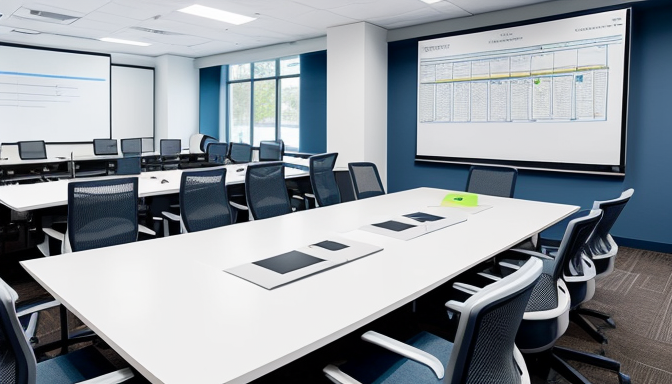Hosting a major event is like orchestrating a grand symphony; it requires not only meticulous planning but also a harmonious blend of various elements. From the moment the idea is conceived to the final applause, every detail matters. Imagine the excitement of a local swimming competition, where athletes from different backgrounds come together to compete. The atmosphere buzzes with anticipation, but behind that thrilling facade lies a complex web of tasks that must be executed flawlessly.
First and foremost, event planning essentials play a pivotal role. This includes establishing a realistic budget, selecting the perfect venue, and creating a detailed timeline. Each component is like a piece of a puzzle, and when they fit together seamlessly, the result is an unforgettable experience for attendees. Think about it: if the venue is too small, or the budget is blown, the event could flop before it even starts!
Moreover, team coordination is vital. A successful event doesn’t happen in isolation; it thrives on collaboration among various stakeholders, from sponsors to volunteers. Effective communication strategies are the glue that holds everything together. Imagine trying to conduct a race without clear instructions; chaos would ensue! Therefore, ensuring everyone is on the same page is crucial for a smooth event flow.
In conclusion, hosting a major event is an intricate dance of planning, teamwork, and execution. With the right approach, you can turn a simple gathering into a spectacular occasion that resonates with everyone involved.
Event Planning Essentials
Effective event planning is the backbone of any successful gathering, and it’s not just about throwing a party; it’s about creating a memorable experience. Imagine hosting a major event as if you were orchestrating a symphony—every note must be in harmony for the performance to resonate with your audience. The first step in this intricate process is budgeting. You need to lay out your financial framework, ensuring you allocate funds wisely. Think of it as building a house: without a solid foundation, everything else will crumble.
Next comes venue selection. Choosing the right location can make or break your event. Factors such as accessibility, capacity, and ambiance are crucial. A stunning venue can elevate the entire experience, making attendees feel special and engaged. It’s like picking the perfect backdrop for a photo; it enhances the overall picture. Once you have your venue, it’s time to dive into timeline management. This involves creating a detailed schedule that outlines every task leading up to the event. A well-structured timeline is your roadmap, guiding you through the planning process and ensuring that nothing falls through the cracks.
In summary, the essentials of event planning boil down to three key components: budgeting, venue selection, and timeline management. Each element plays a vital role in crafting a seamless experience for your attendees. So, are you ready to take on the challenge of planning an unforgettable event?

Team Coordination and Communication
When it comes to hosting a major event, team coordination and communication are the unsung heroes behind the scenes. Imagine trying to conduct an orchestra without a conductor; chaos would reign supreme! Just like musicians must harmonize, each member of the event planning team must work in sync to create a seamless experience for attendees.
Effective communication is the glue that holds everything together. It ensures that everyone is on the same page and that no detail is overlooked. From the initial brainstorming sessions to the final wrap-up after the event, keeping lines of communication open is essential. Regular updates and meetings can help mitigate any potential issues before they escalate. Think of it as a safety net—the more robust it is, the less likely you are to fall into disarray.
Moreover, leveraging technology can significantly enhance coordination efforts. Tools like project management software and instant messaging apps can streamline communication, making it easier for teams to share updates and collaborate effectively. Here’s a quick overview of some popular tools:
| Tool | Purpose |
|---|---|
| Slack | Real-time messaging and collaboration |
| Trello | Project management and task tracking |
| Zoom | Virtual meetings and discussions |
In conclusion, remember that a successful event doesn’t just happen; it’s a product of meticulous planning, teamwork, and clear communication. So, whether you’re managing a local festival or an international conference, keep your team aligned and engaged. After all, teamwork makes the dream work!
Frequently Asked Questions
- What are the key components of successful event planning?
Successful event planning hinges on several critical elements such as a well-defined budget, careful venue selection, and a detailed timeline. Think of it like building a house; if the foundation is shaky, the whole structure could collapse!
- How important is team coordination in event hosting?
Team coordination is absolutely vital! Just like a well-orchestrated symphony, every member of the team needs to be in sync. Clear communication ensures that everyone knows their role, leading to a smoother event experience.
- What should I consider when choosing a venue?
When selecting a venue, consider factors like location, capacity, amenities, and accessibility. It’s like picking the perfect stage for a play; the right venue can elevate the entire experience for your attendees!
- How can I manage my event timeline effectively?
Managing your event timeline involves creating a detailed schedule and sticking to it. Break tasks into smaller, manageable chunks, and keep track of deadlines. It’s all about keeping the train on the tracks!